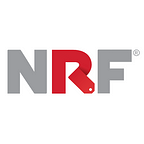Worth a fortune: Using data and insights to anticipate customer needs
Understanding what shoppers need and want — sometimes before they know it themselves — can help retailers deliver delightful experiences. Successful companies are combining thoughtful UX design with high-speed data analysis to bring the right products to the right people at the right time.
Anywhere, anytime shopping
Anticipating customer needs and designing simple solutions can remove friction from retail experiences, said Walgreens’ Deepika Pandey. That’s why the company’s initial forays into mobile app development were focused on helping customers refill prescriptions in 17 seconds or less. The result? Customers can connect with Walgreens anywhere and everywhere … and refilling a prescription doesn’t get in the way of rocking out to Lil’ Wayne:
High-speed, high-efficiency product development
Combatant Gentlemen’s Vishaal Melwani is focusing on intricate data to deliver what customers want. To scale quickly, the direct-to-consumer menswear startup has developed a proprietary system to analyze customer information, social media signals and Salesforce customer service data to power more accurate sales projections, a rapid product development cycle and a no-waste manufacturing strategy. A fast-turnaround design cycle is also key to success for fashion brands like Fabletics: JustFab CEO Adam Goldenberg said feedback from customers results in new products just six to 10 weeks later.
Innovative partnerships
eBags’ Scott Erdman explained how the brand is going beyond a response to customer feedback to proactively fulfill its vision to be the world’s most revered travel goods expert. To make sure it’s delivering the right product assortment for “the connected traveler,” the company is aggressively pursuing tech products like bag locators, wearables, home protection and battery power. The eBags team monitors crowdfunding platforms like Kickstarter and Indiegogo to identify and support products, and also works with venture capitalists and incubators to help innovative products launch. eBags is also joining with Twyst to launch its own Kickstarter campaign; the companies are working together to create “the world’s smartest professional backpack” that uses RFID technology to notify users if specific items aren’t in their bag.
Search, disrupted
Of course, anticipation isn’t just about knowing which products to sell. Next-level retail is about knowing a customer’s problems before they do and finding elegant, helpful ways to offer solutions. The average consumer makes 35,000 decisions every day, and search has long been part of the e-commerce answer to the problem of decision fatigue. Right now, search is not helpful unless you already know roughly what you want, but “e-commerce search is about to be disrupted, big time,” said Emily Wengert, group vice president of user experience at Huge. Startups like Twiggle are set to lighten the burden of choice with natural language processing and machine learning that enhance search and discovery. Creating the shortest possible distance between a customer’s desire and a purchase turns retail into a service that’s all about experience and a brand’s relationship with the customer.
This story was originally published as part of Shop.org’s Digital Experience 2016 Playbook. Download playbooks and other free resources from the NRF Retail Library and make plans to attend Shop.org 2017 in Los Angeles this September.
